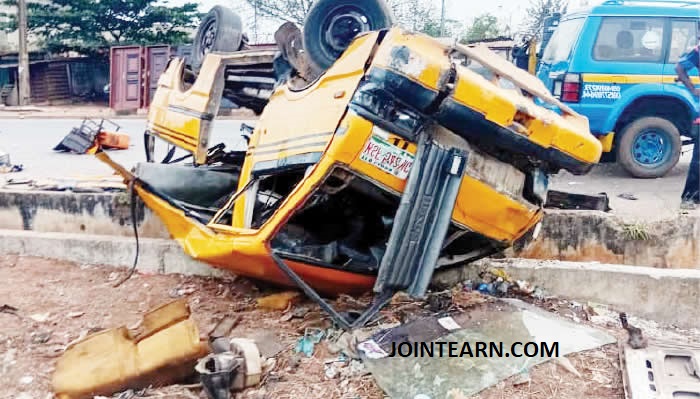The House of Representatives has taken significant steps to address the challenges impeding the seamless conduct of the Unified Tertiary Matriculation Examination (UTME) in Nigeria. Acknowledging the numerous difficulties faced by candidates, examination bodies, and the public, lawmakers have expressed concern over the issues that have marred the credibility and smooth execution of the exam, a key process in university admissions across the country.
The UTME, administered by the Joint Admissions and Matriculation Board (JAMB), serves as a primary gateway for students seeking to gain admission to universities, polytechnics, and other tertiary institutions in Nigeria. However, the examination has been plagued by several systemic and logistical problems, ranging from technical failures during the Computer-Based Test (CBT) sessions to irregularities in the registration process. These challenges have led to delays, confusion, and unnecessary stress for both candidates and educational institutions alike.
Technical Failures and Systemic Challenges
One of the most recurrent issues has been the frequent technical glitches that disrupt the smooth conduct of the CBT, which has been the preferred method of examination in recent years. Many candidates have reported that they encountered difficulties such as system failures, slow response times, and outright crashes of the software during the exam. These issues often result in candidates being unable to complete their tests or losing valuable time during the examination.
There have also been complaints regarding biometric verification errors, which have caused delays at examination centers. Some candidates have found it difficult to be properly verified, leading to frustration and, in some cases, the inability to sit for the exam altogether. These technical hurdles have prompted calls for urgent reforms to the technological infrastructure supporting the UTME.
In response to these challenges, the House of Representatives has called for a thorough review of the entire examination process. Members have urged JAMB to collaborate with technology experts to improve the CBT system, ensuring that all candidates have a fair and equal opportunity to succeed. Lawmakers have also emphasized the need for improved technical support at examination centers to address issues in real-time and minimize disruptions.
Registration and Document Management Issues
Another area of concern has been the registration process, which has seen numerous complaints over the years. Many candidates and their families have reported difficulties in completing the online registration process due to glitches on JAMB’s website, issues with payment platforms, and unclear instructions. This has often led to delays in the issuance of examination slips and other essential documents, causing confusion in the days leading up to the examination.
To address this, the House of Representatives has recommended a streamlined registration system, with a more user-friendly interface and clear instructions. Lawmakers have also suggested that JAMB enhance its customer support services to better assist candidates throughout the registration period. Additionally, they have urged for greater transparency and clarity in the handling of registration fees and other financial transactions associated with the exam.
Malpractices and Examination Integrity
Malpractices have also been a persistent issue in the UTME. In recent years, reports of examination malpractice have surfaced, with some candidates resorting to illegal means to cheat their way into gaining admission. These practices have raised concerns about the integrity of the examination and the fairness of the entire process.
To tackle this issue, the House of Representatives has called for stricter enforcement of anti-malpractice regulations. Lawmakers have recommended that JAMB work closely with security agencies to implement robust monitoring and surveillance systems during the examination. Additionally, they have emphasized the importance of introducing harsher penalties for those caught engaging in malpractices, including the cancellation of results and the prosecution of offenders.
Furthermore, the House has suggested that JAMB explore the use of more advanced biometric technologies, such as facial recognition and fingerprint scanning, to reduce the possibility of impersonation and cheating. These measures would help safeguard the integrity of the examination and restore public confidence in the system.
Logistical Challenges and Candidate Experience
Logistical issues at examination centers have also been a source of concern, with some candidates reporting overcrowded centers, inadequate seating arrangements, and poor facilities. These conditions not only affect the comfort of candidates but also contribute to stress and anxiety on the day of the exam.
In light of this, the House of Representatives has called for improved coordination between JAMB and the various examination centers. Lawmakers have proposed that more examination centers be established to accommodate the growing number of candidates and reduce congestion. They have also recommended that centers be better equipped with necessary amenities, including sufficient seating, reliable power supply, and adequate ventilation.
Legislative Oversight and Accountability
In addition to addressing these specific issues, the House of Representatives has emphasized the importance of regular legislative oversight of the UTME process. Lawmakers have called for more frequent reviews of the examination system to ensure that it meets the needs of candidates and remains transparent and accountable. They have also urged JAMB to provide regular updates on the examination process and make its activities more accessible to the public.
To further enhance accountability, the House has proposed the establishment of a dedicated parliamentary committee to oversee the operations of JAMB and other examination bodies. This committee would be tasked with investigating any complaints or irregularities related to the UTME and recommending appropriate corrective actions.
Conclusion
As Nigeria continues to grapple with challenges in its education sector, the House of Representatives’ proactive stance on the issues affecting the UTME is a much-needed step toward reform. By addressing technical failures, improving the registration process, combating malpractices, enhancing logistical coordination, and strengthening oversight mechanisms, lawmakers hope to ensure that future editions of the UTME are conducted smoothly, fairly, and without unnecessary obstacles. Ultimately, the goal is to provide every candidate with a fair chance at gaining admission to Nigeria’s universities and contributing to the country’s educational and economic development.












